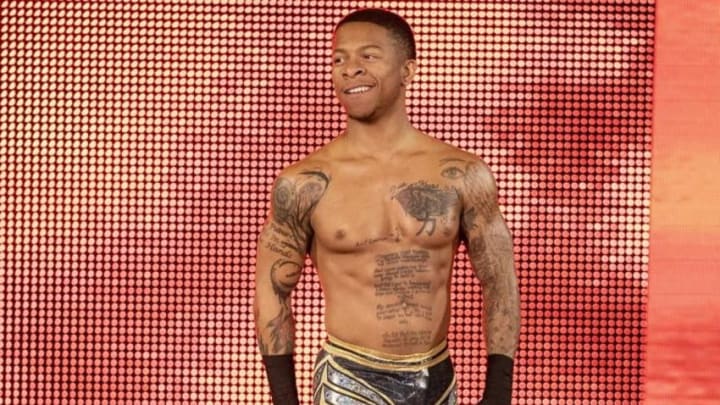Black wrestlers constantly deal with minimizing rhetoric and behavior when they call out racism.
Last month, CM Punk tweeted about how the last few weeks of discussion—or lack thereof in many cases—has shined a light on public figures who either sit silently in the face of racial oppression or openly support people and organizations that contribute to it.
Punk’s comments received praise, but independent wrestler AJ Gray rightfully called out the contrasting lack of support Black wrestlers receive for speaking their mind and voicing their grievances about the injustices they face within the wrestling industry.
White athletes are often commended for using their platforms for charitable causes, raising awareness, or speaking out against wrongdoings that prevail within their industry. Black athletes, however, are constantly belittled, minimized, and expected to reduce themselves to the confines of their profession for speaking out either for themselves or for Black people in general. Professional wrestling is no exception.
Having celebrity status, especially on social platforms, leaves people endlessly open for everything from valid critiques to downright bullying – which, unfortunately for Black celebrities, athletes and entertainers alike – delves into a cesspool filled with racist comments. Still, Black people are faced with the expectation to adhere to exceedingly unrealistic levels of calmness in the face of ignorant, gaslighting, and racist comments.
ACH calling out WWE for making him a racist T-Shirt resulted in a disappointing level of opposition, only fueled by WWE releasing a statement—per PWInsider—claiming ACH himself approved the design.
"“Albert Hardie Jr. (aka Jordan Myles) approved this t-shirt for sale. As always, we work collaboratively with all of our performers to develop logos and merchandise designs and get their input and approval before proceeding. This was the same process with Albert, and we responded swiftly once he later requested that the logo/t-shirt be redesigned. No t-shirts were sold.”"
WWE had the chance to acknowledge their ignorance, apologize to ACH and encourage fans to listen to his perspective as well, instead but opted to place the blame entirely on him and leave him to fend for himself against racist remarks.
ACH later acknowledged his emotions got the best of him in that situation, but it was in no doubt fueled by a clear lack of compassion from many “members” of the wrestling community. ACH put his body on the line to thrill audiences with his phenomenal work in NXT, Ring of Honor and New Japan Pro Wrestling, yet when he sought to be heard, the same community either ignored him or actively antagonized him to the point that it negatively impacted his mental health.
Lio Rush shined in whatever role he was given on WWE TV. He was a consistent highlight of 205 Live, thrived as Bobby Lashley’s mouthpiece and was instrumental in establishing the Cruiserweight Championship on the NXT brand. Despite this, Rush was treated poorly throughout his WWE tenure.
PWInsider’s Mike Johnson revealed one of the sources of content to be Rush’s refusal to comply with monotonous tasks that are often delegated to newer roster members. Rush later elaborated in an interview with Fightful’s Sean Ross Sapp that in the event fans witnessed a young Black man carrying other wrestler’s bags and waters, it would send the wrong message given the racial connotations.
Earlier in June, Rush took to Instagram posting a screenshot of an e-mail from November 2018 detailing his concern that his refusal to comply with racially insensitive tasks created a hostile work environment.
Rather than open a dialogue about what should and shouldn’t be dismissed as tradition—in addition to some of the dated, asinine practices that take place under its guise—many comments made Lio out to be a “crybaby” despite the e-mail clearly outlining the reasons for his non-compliance to something that wasn’t even in his job description.
WWE along with wrestling fans had the opportunity to evaluate the practices of the wrestling industry—covert or otherwise—and find a solution that prioritized a Black athlete’s professional and mental well-being but failed.
Rush has continued speaking out through Twitter, calling out the continued villainizing that Black wrestlers face as well as the demeaning perceptions of bitterness and anger that is attached to them for sharing their opinions.
Especially now, it is important for everyone to take an active stance against racism and for wrestling promotions as well as the wrestling community as a whole to properly support Black wrestlers. At a minimum that means actively condemning racism and allowing Black wrestlers the platform to do so without being invalidated.
Long-term, it is crucial to dismantle the overwhelming whiteness—and genuinely rather than for tasteless PR brownie points—in the industry, at the active roster level and particularly at the corporate level in order to help foster a more supportive environment for Black wrestlers.
